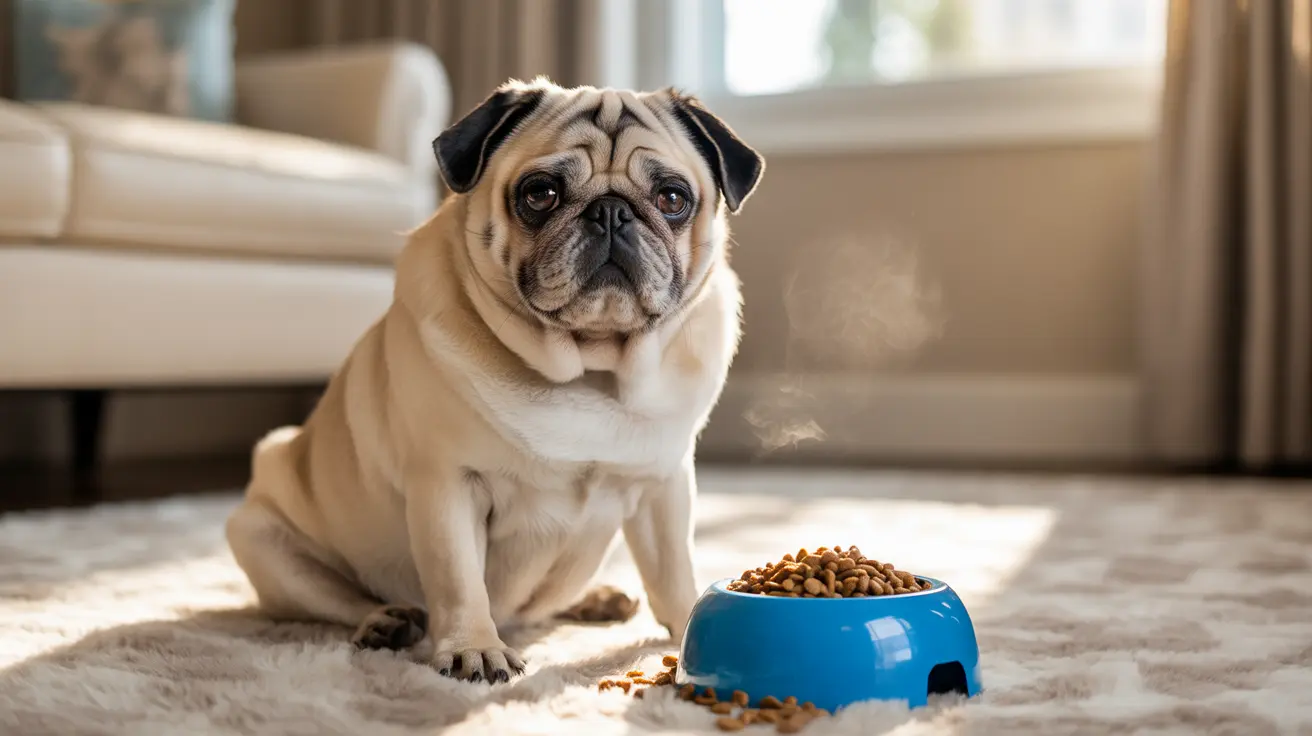Understanding Normal Dog Burping Patterns
Dogs typically burp for the same reason humans do - to release trapped air from their stomach. This is most common after eating or drinking, especially if they consume their food quickly. Certain breeds, particularly flat-faced (brachycephalic) dogs like Pugs and Bulldogs, tend to burp more frequently due to their unique facial structure.
Normal burping patterns vary among individual dogs, but generally occur:
- After meals or drinking water
- During periods of excitement
- Following exercise or play
- When switching positions quickly
Common Causes of Dog Burping
Several factors can contribute to your dog's burping frequency:
Eating Habits
Fast eating is the most common cause of excessive burping in dogs. When dogs gulp their food, they inevitably swallow air along with it, leading to more frequent burping episodes.
Dietary Factors
Certain foods and eating patterns can increase burping frequency:
- Recent diet changes
- Human food consumption
- Dairy products
- Gas-producing vegetables
- Food allergies or sensitivities
Medical Conditions
Sometimes, frequent burping can indicate underlying health issues:
- Acid reflux
- Gastrointestinal inflammation
- Food intolerances
- Megaesophagus
- Gastric dilatation-volvulus (bloat)
When to Be Concerned About Dog Burping
While occasional burping is normal, certain signs warrant veterinary attention:
- Excessive or unusually frequent burping
- Burping accompanied by vomiting or retching
- Loss of appetite
- Lethargy or depression
- Visible discomfort or pain
- Distended abdomen
- Changes in bathroom habits
Prevention and Management Tips
To help reduce excessive burping in your dog:
- Use slow-feeder bowls to prevent rapid eating
- Feed smaller, more frequent meals
- Maintain a consistent feeding schedule
- Avoid sudden diet changes
- Keep your dog calm during meals
- Consider using puzzle feeders for mental stimulation and slower eating
Frequently Asked Questions
Is it normal for dogs to burp after eating or drinking?
Yes, it's perfectly normal for dogs to burp after meals or drinks. This helps release air they've swallowed while eating or drinking, especially if they tend to eat quickly.
What causes excessive burping in dogs and when should I be concerned?
Excessive burping can be caused by eating too fast, anxiety, or underlying medical conditions. Be concerned if burping is accompanied by other symptoms like vomiting, lethargy, or appetite changes.
How can I prevent my dog from swallowing too much air and burping frequently?
Use slow-feeder bowls, feed smaller portions, and ensure a calm eating environment. These measures can help reduce air intake during meals.
Which dog breeds are more prone to burping and why?
Brachycephalic breeds like Pugs, Bulldogs, and Boston Terriers are more prone to burping due to their shortened airways and facial structure, which makes them more likely to swallow air.
When does burping in dogs indicate a serious health problem like bloat?
Burping combined with symptoms like a distended abdomen, retching without producing anything, restlessness, or pain could indicate bloat and requires immediate veterinary attention.
Conclusion
Understanding your dog's normal burping patterns helps you better monitor their digestive health. While occasional burping is typically nothing to worry about, being aware of changes in frequency or accompanying symptoms can help you identify potential health issues early. When in doubt, always consult with your veterinarian for professional guidance.






